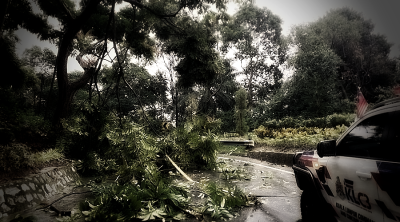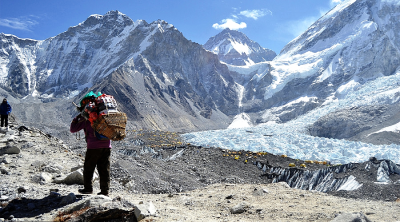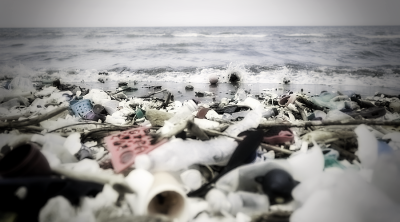Wherever possible, use less air-con, say “no” to single-use plastic, embrace energy-efficient appliances, and help protect our planet Earth before it gets too late.
Natural resources, environment and climate change minister Nik Nazmi Nik Ahmad said on Tuesday that beginning 2025, the use of plastic bags will be completely banned nationwide.
We only have around two years’ time to adapt to life without plastic bags, or pay a hefty government-imposed sum for them.
99 Speedmart is the first to echo the government’s policy, not providing any plastic bags beginning this month. However, patrons can still purchase from the shop a RM2 Madani reusable bag which can be exchanged for a new one with the old, or have the RM2 “deposit” refunded anytime.
Nik Nazmi said Malaysia is one of the top ten countries in the world facing severe plastic waste problem, and this is by no means exaggerated. Compared to Taiwan, Singapore, Japan, South Korea and Scandinavian countries, we are almost a “plastic paradise” where we won’t go out shopping without plastic bags.
The havoc from this seemingly insignificant plastic bag towards our planet must never be underestimated. If each of the world’s eight billion people use only one plastic bag a day, we will have to produce 2.81 trillion plastic bags a year. What about plastic bottles and containers?
A professional scientific journal reported several years ago that humans poured 23 to 37 million pieces of plastic debris into our oceans every year. The five major subtropical gyres have been choked with a total of 5.25 trillion pieces of plastic debris.
Currently the world’s biggest garbage dump is the Great Pacific Garbage Patch covering an area of almost 1.4 million square kilometers, or 4.2 times the size of Malaysia. The United States is the biggest contributor of marine garbage on a per capita basis. And of course, China and India are also big polluters.
Our oceans are vast, covering 361 million square kilometers, but thanks to unchecked human devastation, some 2% of our sea surface is covered by floating debris. You are right, that is more than 7 million sq km!

While we are avidly condemning the Japanese government for planning to release over a million tons of treated wastewater from the Fukushima nuclear plant into the sea over 30 years, we should more so ask ourselves whether we are are also ruining our own oceans!
Plastic waste and other garbage conveniently discarded by us can hardly be handle by our seas or land. A mineral water bottle will require 600 years to be fully disintegrated. Some that find the way into the gastrointestinal tract of marine animals might eventually end up inside our own bodies!
A North Dakota State University team has recently developed a new type of plastic that can decompose when exposed to the sun’s ultraviolet rays, a process that takes only three hours!
Theoretically this is going to be a good idea of replacing trillions of plastic bags and containers we use each year, but how? The best solution is still to educate the public and change their perception towards plastic, reducing (or stopping) the use of single-use plastic.
Scandinavian countries like Norway and Sweden are collecting deposits from consumes for all kings of drink bottles. For a 3.9-euro bottle of mineral water, the deposit for bottle alone could be as high as 2.9 euros! So, you’d better drop the bottle into the recycling machine to get back your deposit after finishing your drink.
Thanks to such a creative measure, the recycling rate of drink bottles reaches more than 95% in Sweden.
In Taipei and New Taipei City of Taiwan, the local governments have been implementing strict garbage classification policy which we can emulate. Taipei’s special garbage bags with laser printed labels are not cheap, and there are CCTVs everywhere to catch people carelessly dropping garbage onto the floor.
They even have different garbage trucks to collect plastic, metal, paper and other recyclable waste. Today, trash cans are rare in Taipei but the streets are almost always litter-free. This shows that the habit of reducing waste can actually be nurtured.
We have now come to a very critical point in saving our planet. The problems of climate change, heatwave, expanding polar ice melting phenomenon, etc. might look like far beyond our ability to control. But even with so much effort being put in by governments, carbon emission still reached a historical high of 36.8 billion tons in 2022.
The Malaysian government and businesses must refrain from running coal-fired power generation plants, EVs should be promoted, along with energy-efficient electrical appliances with the hope of achieving the goal of carbon neutrality by 2050 for the sake of our children.
Wherever possible, use less air-con, say “no” to single-use plastic, embrace energy-efficient appliances, and help protect our planet Earth before it gets too late.
ADVERTISEMENT
ADVERTISEMENT







































